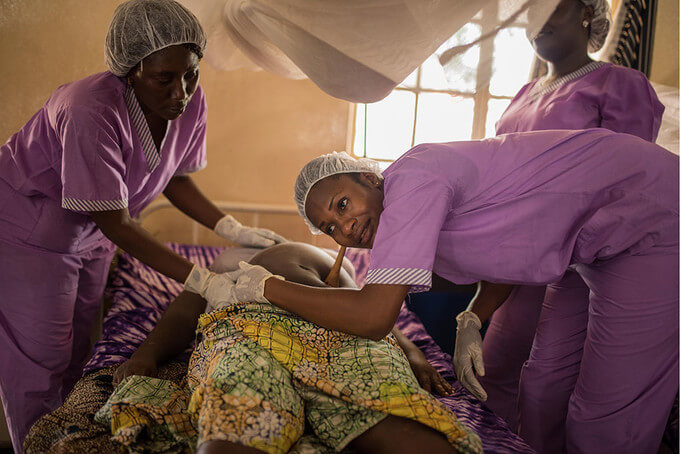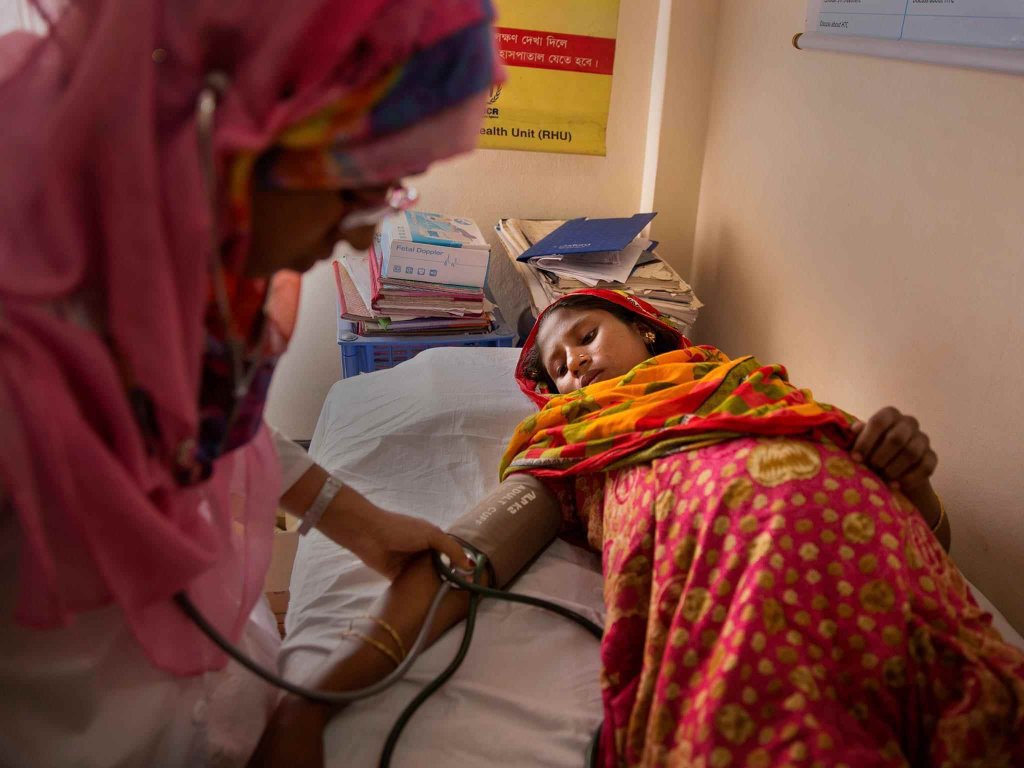How a Midwife can Save Moms Around the World

Midwives are an essential part of reproductive health care all over the world.
They provide woman-centered care during pregnancy, delivery, and after birth, and they work within communities to provide information and resources about sexual and reproductive health for all people, including youth and men. However, the 73 countries that have 96 percent of the world’s maternal deaths only have 42 percent of the world’s midwifery resources.
Midwifery has been shown over and over to reduce maternal death, be cost-effective, and provide much-needed care.
Here are some ways that a midwife can make a difference for a mom:
Midwives make sure that women have the necessary nutrients and medicines to have healthy pregnancies.
During pregnancy, women need access to adequate food and medicine to stay strong and healthy. Some of these nutrients include folic acid to prevent birth defects, protein to promote growth, vitamin D for bone strength, and iron to prevent anemia. Midwifes can educate women on what their diets should look like so that both mother and baby are healthy. Midwives can also give women the medication they might need to avoid sickness, which can affect their bodies’ ability to provide for the baby.
Midwives provide care during labor for normal deliveries.
For normal deliveries, when there are no pregnancy or childbirth complications, midwives provide adequate labor care. They encourage and counsel mothers through the delivery process, they monitor the baby’s position and heartbeat, and they can provide pain relief, or find a doctor to administer it, if needed. Midwives reduce the need for caesarean sections and medically-induced childbirth, both of which can cause maternal death or injury during childbirth. After birth, a midwife will help the new mom with breastfeeding, changing diapers, and calming the baby.
In the case of complications, or abnormal deliveries, midwives can get help quickly.
Part of the midwives’ work is to be attune to the mother’s needs and how her pregnancy is going. When something goes wrong, like in the case of a retained placenta, obstetric fistula, or if the baby shifts during pregnancy or delivery, a midwife can quickly identify the problem and find a doctor or nurse to help.
Midwives provide a sense of assurance.
Midwives provide essential information, support, and care for new moms. In terms of providing maternal care, midwives are more cost-effective than doctors, nurses, and their health facilities. Midwives also meet women where they are, making them easier to deploy into remote areas or times of crisis. They are associated with higher rates of positive childbirth experiences, and most importantly, if the need for midwives across the world was met, the rate of maternal death, stillbirths, and newborns deaths would decrease by 83%. In a world where 830 women die every day from pregnancy and childbirth complications, midwives save lives.
Midwives make sure that mothers have access to the care they need after delivery.
Midwives aren’t only present during pregnancy and childbirth. They work in communities year-round to educate all members on family planning, STI prevention and treatment, and maternal health. After birth, midwives will often check in during the first few weeks of life to make sure that nothing is amiss. Further, midwives can provide information and access to family planning resources so that the new mom can decide when and if to become pregnant again. Moms need to recover emotionally and physically after childbirth. When pregnancies are spaced too closely together mothers are at higher risk for injury and death during their next pregnancy.

If the need for midwives across the world was met, the rate of maternal death, stillbirths, and newborns deaths would decrease by 83%. In a world where 830 women die every day from pregnancy and childbirth complications, midwives save lives.
Midwives provide essential information, support, and care for new moms. In terms of providing maternal care, midwives are more cost-effective than doctors, nurses, and their health facilities. Midwives also meet women where they are, making them easier to deploy into remote areas or times of crisis. They are associated with higher rates of positive childbirth experiences, and most importantly, if the need for midwives across the world was met, the rate of maternal death, stillbirths, and newborns deaths would decrease by 83%. In a world where 830 women die every day from pregnancy and childbirth complications, midwives save lives.
-Dana Kirkegaard